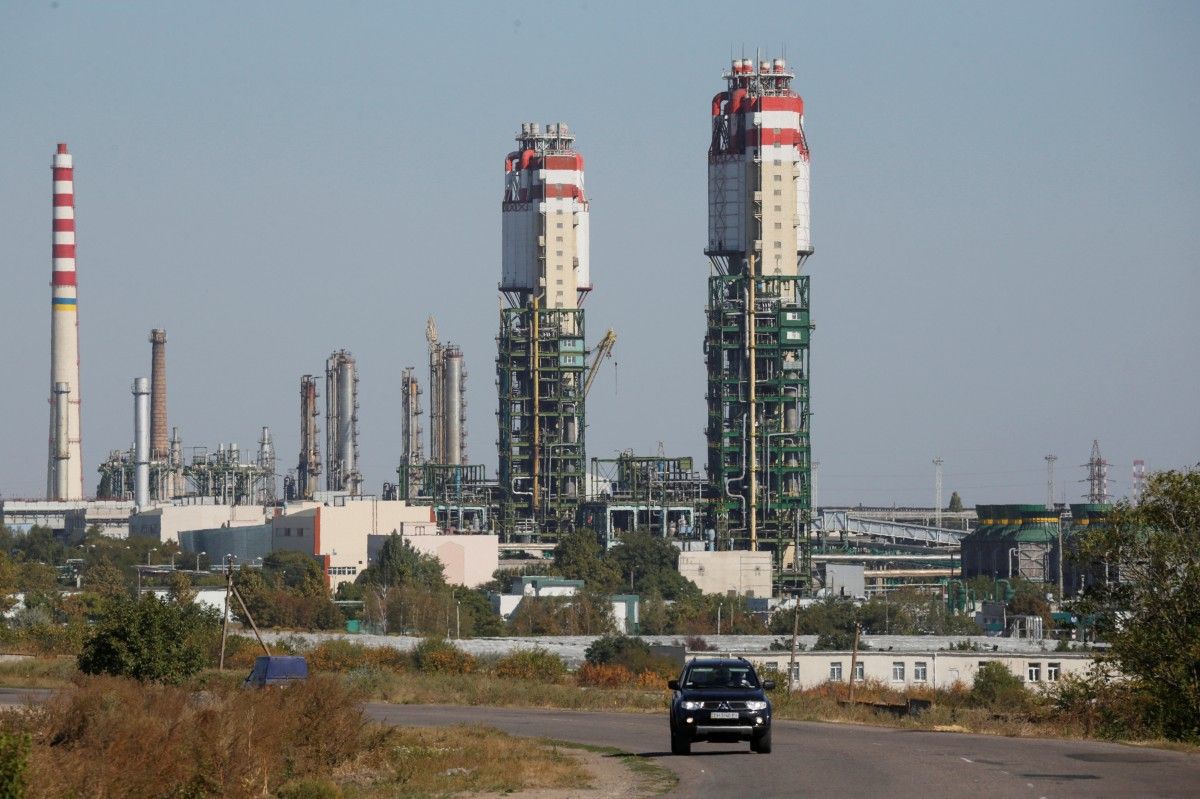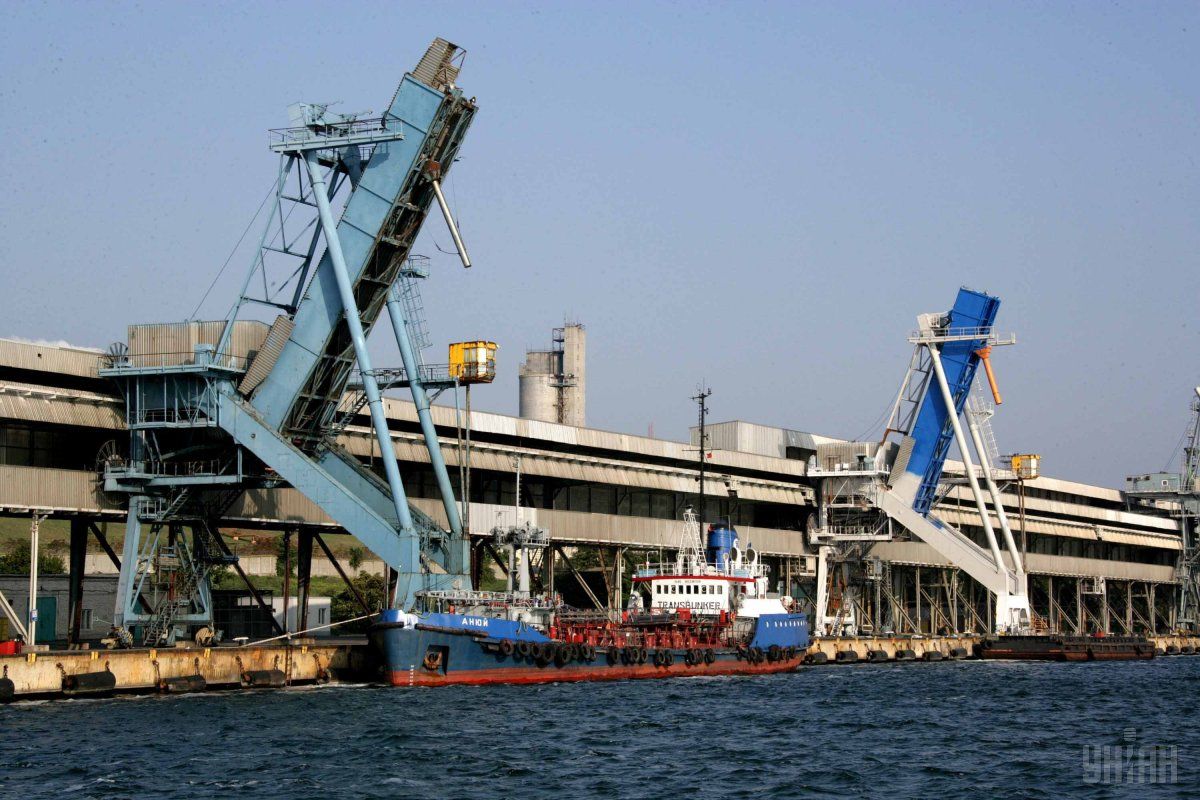
Third attempt to sell OPP. One more fail.
The third attempt of the Ukrainian authorities over the last seven years to sell the Odesa Portside Chemical Plant (OPP) saw no result, yet again. Potential investors have ignored the auction scheduled by the State Property Fund (SPF) for December 14. The blame for another "D" in a test is shared by the SPF and the Cabinet, as both failed to properly prepare the chemical giant for its sale.
The OPP sale was supposed to become the main privatization event in 2016, showing a serious revival of interest of foreign and national investors in Ukraine’s industrial potential. But, alas, this never happened. The bidding to sell a 99.6% stake in one of Ukraine’s largest producers of ammonia and urea, scheduled for December 14, did not take place due to lack of applications from potential buyers.
It was late December 6 when it became absolutely clear that the investors had ignored the third attempt of Ukraine to sell OPP as the SPF completed the stage of acceptance of applications with zero result.
The first attempt to sell OPP was undertaken in 2009. The winner of the auction was a Ukrainian company Nortima, which offered the highest bidder in an equivalent of $624 million. However, the government then headed by Yulia Tymoshenko canceled the results of the contest, accusing the buyers of conspiracy. Nortima is still in litigation defending its rights in courts. It considers new privatization attempts by the SPF as property infringement.
A second unsuccessful attempt to privatize OPP with a starting price at UAH 13.2 billion was taken July 2016. Customers were apparently not really fascinated with such a price.
Terms of the third attempt to sell the state asset have been approved by the Cabinet of Ministers October 19. The SPF, the agency responsible for organizing the auction, on October 31 announced the privatization of the enterprise with a starting price of UAH 5.16 billion, or about $200 million.
The auction was to be held on December 14, and the winner was simply supposed to offer the highest bid.
At least two bidders had to take part in the auction, one of whom had to be a non-resident of Ukraine. And, traditionally, there had to be no participants from Russia (the aggressor state), offshore zones or countries that do not cooperate in a noble cause of fighting money laundering.
Four investors had previously announced participation: Ukrainian oil and gas company PJSC Ukrnaftaburinnia, Cyprus-based Glenshee Holdings, IBE Trade from the U.S., and the UAE-based Amjad Investments. However, in the end, none of them filed applications.
Advisor with Russian roots
Since the asset is of strategic importance for Ukraine, the Fund used services of an advisor on privatization. Back in the autumn of 2015, the SPF chose a Swiss bank UBS as its advisor. UBS has international experience in mergers and acquisitions. In addition, it is a former employer of SPF Head Ihor Bilous, who worked at UBS before joining the civil service. So the man responsible for the OPP sale was firsthand familiar with this financial institution.
All information on the financial and economic activity of OPP passed through the advisor, as well as the information on potential buyers and their offers. Roughly speaking, the advisor possessed the most extensive package of primary information - even more than the SPF, which is evidenced by a booklet sent out to investors.
"Any comments or queries relating to the company's privatization process should be sent to the persons below mentioned. Under no circumstances is contact allowed with other employees, contractors, and affiliated entities of OPP and SPF," as stated in the information teaser sent by the State Property Fund.
One such "persons mentioned below" is Anton Potapenko. Based on the information that is available in his LinkedIn profile, he built his career in the Moscow office of UBS, starting as an analyst and going up to becoming head UBS Investment Bank. As stated in his profile, he is still holding this post.

The teaser says though that the man is a representative of UBS London office. However, potential buyers were concerned about the advisor’s Russian roots, given how much information he possesses.
"This is outrageous. How can we, while privatizing the company in Ukraine, provide the aggressor state with the information it can use it for its own purposes?" deputy chief of legal department at Ukrnaftaburinnia Taras Metenko shared his fears with UNIAN.
He also confirmed that Mr Potapenko provided contacts of UBS's Moscow office for consultations on OPP privatization.
"We know that we spoke with a consultant who is in Russia. Officially Potapenko has swithec us to Moscow... A Moscow representative, with whom we spoke, is Rasul Tekeev," said Metenko. According to the information from LinkedIn, Tekeev is an analyst at UBS Investment Bank Moscow branch.
Investors' concerns can be understood: after all, who wants to pass to the aggressor state any confidential information on plans to privatize a large chemical plant? The SPF, which is in direct contact with its advisor, could have foreseen this problem and involve the bank's consultants only from their western offices (the bank has its branches almost in every capital of the European Union). The SPF could foresee this, but it didn’t.
In turn, the Ministry of Economic Development and Trade, responding to an UNIAN request, noted that the ministry has no relations with an advisor therefore it is not familiar with the fact of the BUS consultants’ Russian citizenship. At the moment of publication, the SPF did not response to an UNIAN request.
"That is how they care about national security… I suggest this advisor will give a hint to the Russian businessmen, how to enter the contest despite the ban through some offshore jurisdiction," former head of the State Property Fund Oleksandr Bondar has told UNIAN.
It is worth noting that the advisor does not decide on the admission of an investor to the auction: it’s the SPF and the Cabinet who must control this issue. The worrying thing is that Russian intelligence services could get hold of commercial information and then be able to use it against the Ukrainian enterprises and foreign investors. And this is an obvious risk.
OPP’s debt burden
Another and no less important risk is a significant debt of Odesa Portside Chemical Plant to Ostchem owned by a Ukrainian businessman Dmytro Firtash and to Naftogaz of Ukraine.
OPP owes Naftogaz some UAH 524 million for the gas supplied. Natural gas is the main raw material for the plant. Despite the debt, gas is supplied to the enterprise by the decision of the Cabinet to approach privatization in full operation mode and avoid accidents. In addition, the idle plant would generate huge losses.
"The idle plant generates UAH 7-9 million of losses a month," said the head of the SPF when the plant in August and September did not work due to lack of gas supply and the debt.
The current contract between the plant and Naftogaz expires late December, and no one is talking about its extension, hoping that the problem will lay on shoulders of a new owner. Who seems not to be willing to come in…

The OPP debt before Naftogaz, in comparison with its debt to Ostchem, looks ridiculous. The plant’s obligations to the company owned by Firtash total $251 million, of which $193 million is the debt body and another $58 million in fines and penalties.
This amount is not final and increases by almost $50,000 daily, due to the interest rate. The debt is certified by auditors and the Stockholm arbitration, so it is difficult to challenge. The lack of government response over time will make this debt undeniable, despite the dubious nature of its origin.
But no one dealt with this problem in a process of OPP preparation to its sale. As noted by Ukrnaftaburinnia, the SPF offers to buy the plant along with its debts taken earlier, and the investors are offered to work with these debts. At the same time the Fund offered no options for debt restructuring, not to mention the partial repayment by the State.
The SPF put forward an initiative to pay off the debts to Ostchem with the help of the loans from the Ukrainian state-owned banks, but the feasibility of such a move is doubtful.
"If the government is interested in the sale of an asset, it should create appropriate conditions for the buyer or go for some favors," said the lawyer from Ukrnaftaburinnia.
Investors had earlier asked for tax preferences and favorable conditions even before the canceled auction in July, but the requests remained unheard. This means that the problems of the previous bidding spilled over into the new auction.
Any investor willing to buy OPP would have to face a practically unaffordable mass of problems. In addition, over the next five years, the SPF would monitor OPP operations and, in the event of breach of contract, the Fund would be able to regain a stake back into state ownership. Given the fact that the company needs tens and possibly hundreds of millions of dollars of investment, while the market OPP serves will not be growing in the next couple of years, according to forecasts, the OPP privatization is like a casino where in order to win you have to spend a lot, too.
Obviously, the third attempt to sell OPP will not be the last one. And a question arises, whether the authorities draw honest and right conclusions from the previous three "unsatisfactory" biddings in the process of preparing the fourth one.
Vitaliy Chuyko

